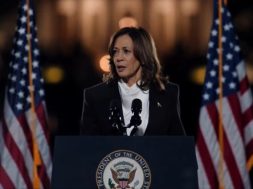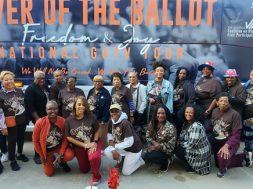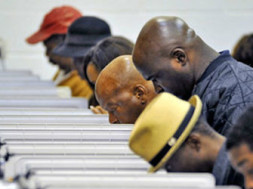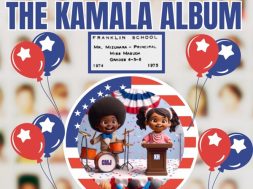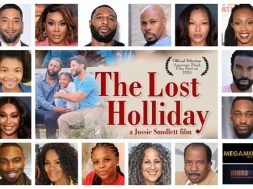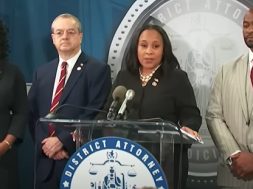
Black Academic Stars Bridging the So-Called Achievement Gap

While integration has allowed talented black students to attend schools of their choice, statistics show that America’s HBCU’s still produce a high percentage of blacks with post graduate and professional degrees, both of which remain keys to bridging the so-called “Black Achievement Gap.”
Despite these facts, the major media often seems to focus more on the fact that blacks continue to be represented disproportionately in out of wedlock births and on prison rolls. Indeed, these are issues that are and must continue to be addressed, but all too often, black achievement—sans gap—is not heralded to the decibels that it should.
This past week I had the pleasure of pondering this reality while attending a retirement celebration in honor of Dr. Vivian Hobbs, who ended 44 years as an educator including the last 25 years as an English and Humanities professor at her alma mater, Florida A&M University. In full disclosure, and with great pride, Dr. Hobbs is also my mother.
Last week’s celebration was not just about the thousands of English students that she has taught the rudiments of language and literature, but a celebration of a very special set of students who earned the privilege of playing for her on the FAMU Honda Campus All-Star Challenge team (HCASC). HCASC is the Historically Black College and University version of the old College Bowl series that matches teams from across the nation in two eight minute halves, where questions on myriad academic subjects are answered by opposing teams. If you never saw or do not remember College Bowl, then think “Team Jeopardy.” Each year HCASC competitors fight for the right to earn a $50,000 institutional grant and the opportunity to be deemed champions.
For over twenty years, American Honda motors has sponsored the tournament, which during its first six years was taped in Los Angeles and aired each summer on BET. Since 1996, Honda has flown 64 (now 48) teams to Orlando each year for a week filled with intense competition and more importantly, networking with other future leaders.
Under Hobbs’ tutelage, FAMU won six national championships—-six–between 1991 and 2005. HCASC official and moderator Tom Cunningham, a fraternity brother of mine who was the leading scorer on FAMU’s first championship team, perhaps summed it best when reminding the audience that in the world of sports such a feat would have Hobbs’ name mentioned in the same rarefied company of UCLA’s John Wooden, who won 10 NCAA basketball championships in 12 seasons.
But such mention rarely occurs because sports still have a greater hold on the collective American imagination than academic bowls and spelling bees, which is curious when considering that on some years, the Honda academic teams at the dominant schools in the competition bring in as much or more revenue than Golf, Swimming or Bowling.
More importantly, in an era in which black boys and girls are taunted with the pejorative appellation of “acting white” for excelling in academics, perhaps it is time for these stories to be displayed across the varied spectrum of news media.
Among Hobbs’ notable former students are countless doctors, pharmacists, lawyers, physicists, engineers, theologians, movie producers, and politicians—-just to name a few professions. As for her national championship teams, 27 of the 30 students that played on those 6 squads were black men. It should be noted that both women who made the cut, Natalie Tindall and Gabrielle McMahan, eventually went on to perform exceptionally well on College Jeopardy before graduating with a PhD in Communications and an M.B.A., respectively.
And yet, you rarely see such stories chronicled on mainstream television, neither Oprah with her vast media empire nor BET or TV-One, for that matter, have done any recent documentaries on not only the Honda tournament, but other academic competitions at HBCU’s that prove that the sum total of the African-American experience is not limited to acting, singing, dancing and playing ball.
Not that there is anything wrong with those fields, however, it still remains the truth that an industrious young student has a better chance making it into a four year college than becoming the next Marvin Gaye or Denzel Washington. It is not merely important to discuss these topics for vainglory, rather, it is critical that young students know that folks who look, speak and were raised in similar circumstances as they have transcended humble circumstances to lead extraordinary lives. Through faith and hard work, along with the encouragement of countless educators like Hobbs, the achievement gap that is so pronounced eventually will be closed, one mind at a time.

